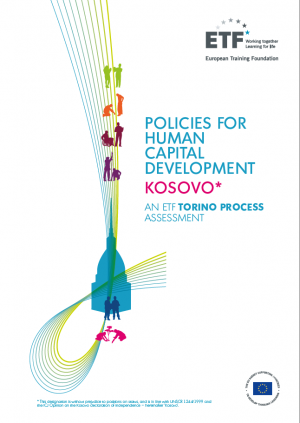The present Torino Process assessment analyses the main challenges for the development and use of human capital in Kosovo and how education, training and labour market policies could respond. It discusses in more detail current key issues and policy responses related to governance in vocational education and training (VET), the high youth unemployment rate and female inactivity. It draws on information provided in the national Torino Process report for Kosovo[2] Dukagjin Pupovci compiled the national report in 2018, which was endorsed by national stakeholders. It can be accessed at the following web link: https://openspace.etf.europa.eu/trp/torino-process-2018-2020-kosovo-national-report.
and other sources. The assessment is addressed to policy-makers and their partners in the country who are concerned with the design and implementation of education, training and labour market policies. At the same time, the assessment can inform the design of new programmes or projects by the European Union (EU) or other donors.
Key messages include revising current governance and legal arrangements in VET to further advance VET system reforms at this point in time, with a view to better aligning VET provision with labour market needs and enhancing VET quality. Youth employment requires a multifaceted approach, ranging from developing young people's practical skills to offering targeted training and job opportunities by employment services and employers. Furthermore, a joined-up, cross-government approach, addressing child and elderly care issues, maternity regulations, women's property ownership, women's education, skills and entrepreneurship, can help address the huge female inactivity levels.
This report starts with a short country overview and the strategies for human capital development (Chapter 1). Chapter 2 looks at demographic developments and their implications for educational planning, the economic and labour market contexts, as well as education and training, and related key challenges for human capital development. Chapter 3 reviews the current governance and institutional arrangements in VET, which currently appear to form a major stumbling block to further VET reforms in Kosovo. In addition, this chapter discusses in more detail the issues, policies and recommendations related to youth unemployment and the high female inactivity rate and the related huge underutilisation of skills. Chapter 4 provides a conclusion. Finally, Annex 1 summarises the key recommendations in table format, while Annex 2 provides a chart of Kosovo's education and training system.
